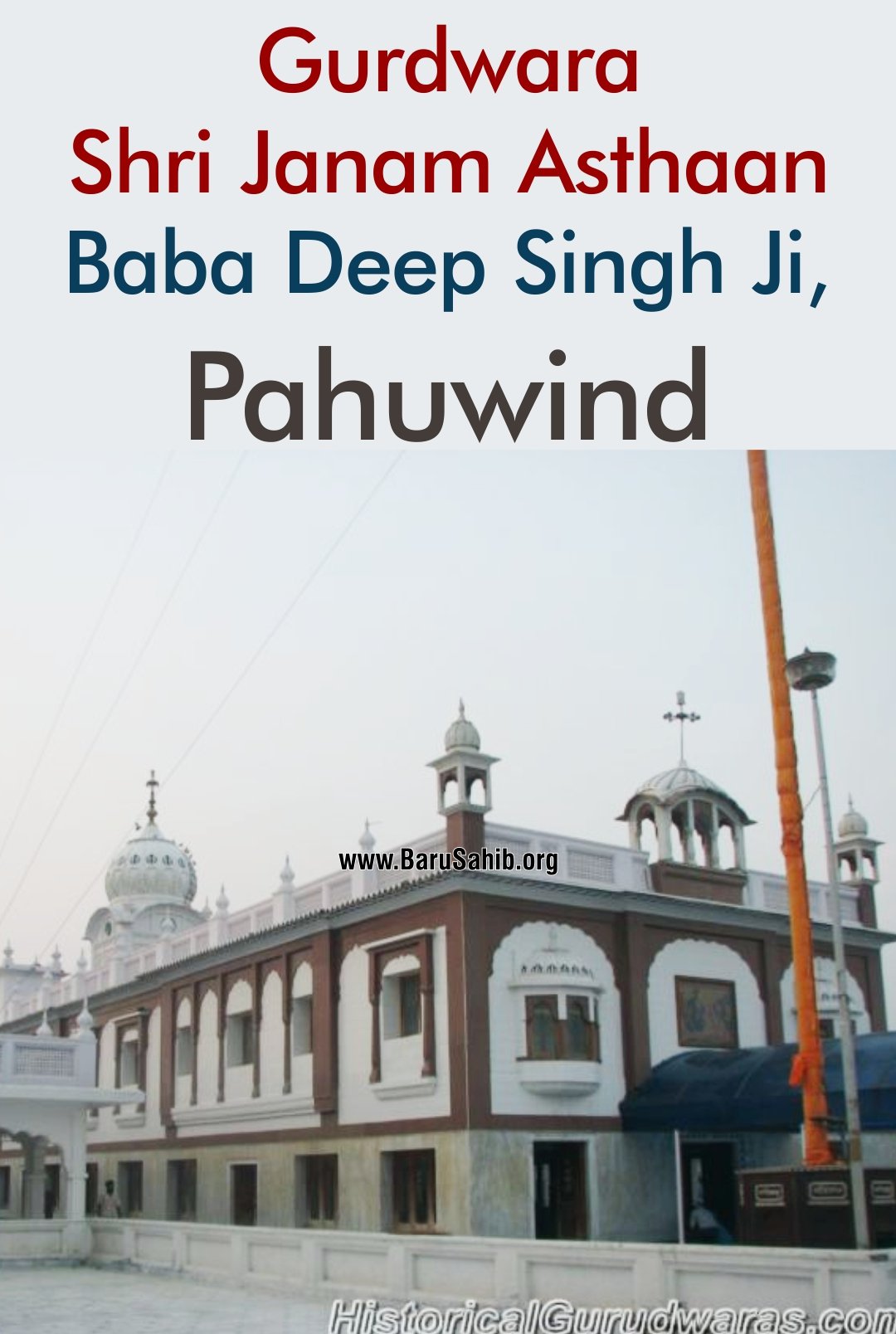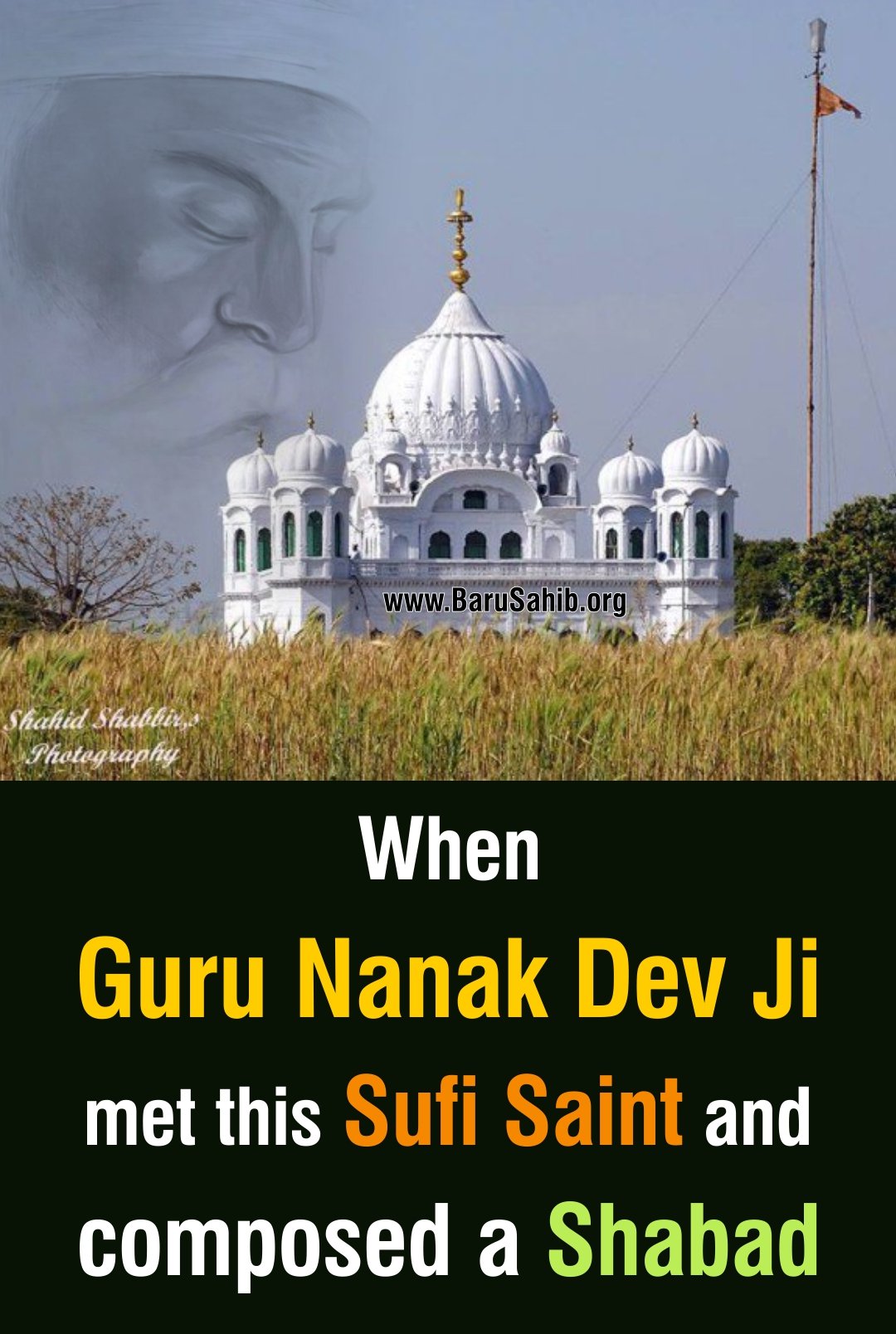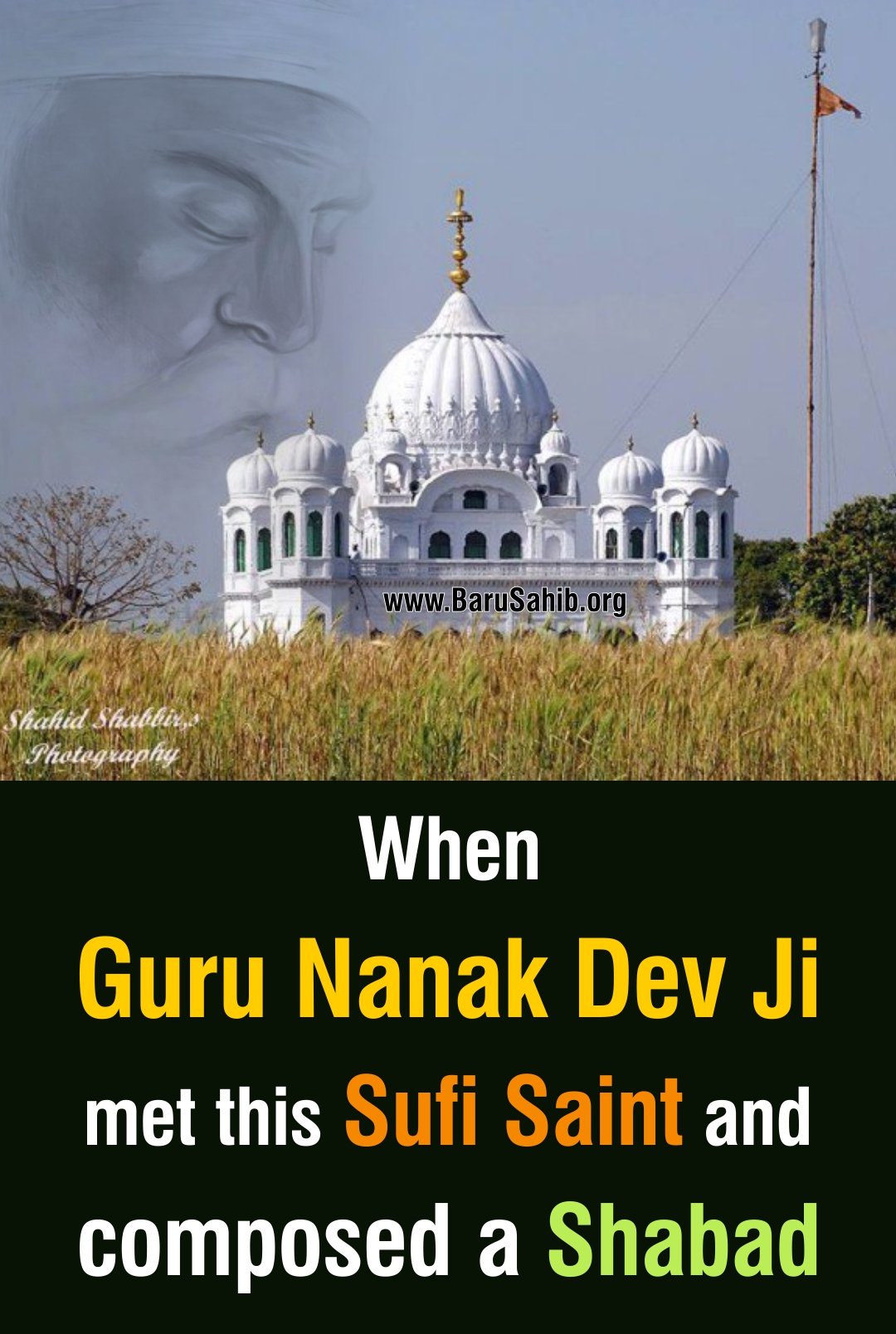Guru Nanak Dev Ji as a child was busy in playing with other children when his father Baba Kalu ji called him home. He was now worrying about his education in Persian and Arabic. As he was a village Patwari (one who keeps records of farming lands in village) and Persian language was used as official language so he wanted his son to learn Persian and Arabic language. As a child, Nanak was handsome and was always adorned with beautiful clothes by Mata (Mother) Tripta Ji and always appreciated by onlookers while he played with other friends in the lanes of Talwandi. He always played intellectual games and asked his friends to utter sweet words in the praise of God which people found unusual for children of his age.
Baba Kalu ji called him as he wanted to take him to the local Persian teacher Rukn-ul-din as his employer Rai Dular had promised that he will appoint Nanak in succession to his father if he becomes well versed in Persian language as that was the language used for recording and accounting purpose. Baba Kalu ji reasoned, “Nanak will be wasting his life in playing with street children without formal Persian education, the language of the learned in those times. What other work he can do for earning wealth in future than that being done in the family? If he does any other trade lower than this one than people will slander him. It is my duty as father to educate him as these are very crucial years for his education.”
Baba Kaluji took his son to Mulla’s place so that he could learn Farsi and Arabic. Baba Kaluji sat with the Mulla and began to introduce and praise his son. He said, “Mulla ji, please teach my son lovingly. He is a very sharp child and will learn quickly. Kindly tell me the auspicious time when I bring the child to initiate his learning of Farsi?”
Mullah ji consulted his Hizri calendar and found that next day was the day when Prophet Mohammed ended his meditation in cave called Hira, located on the mountain called Jabal-an-Nour near Mecca. He replied, “Tomorrow is an auspicious day to bring your son to school. I will teach him lovingly and will not try to discourage him. He appears to be sweet and bright child. Send him with a black wooden slate and chalk pieces for writing Farsi alphabets on them”
In the morning said to his son, “Beta (son) Nanaka ! Please try to study sincerely as the Mullah instructs you and learn all your lessons properly instead of wasting time in playing with children.” Baba Kalu took some sweets and a silver rupee to the school which was given to the Mullah as Guru dakshina (offering to guru). Mullah distributed the sweets among children and started writing on the blackboard. First he read the Qalma invocating the All Merciful Allah for showering grace on Guru and wrote the first word ‘Alif’ (الف) then asked Guru Nanak to repeat it. Likewise, he wrote 10 words and asked Nanak to memorize them and asked him to come next day for next ten words. But Guru Nanak told him that he has already learnt these words and wanted him to teach new words as these words made him remember the Almighty Lord. Mullah was shocked as he himself felt that these alphabets were just dull meaningless words and were to be remembered by repeated rote learning and here was this boy who found these alphabets interesting as they made him remember God. A guru always becomes happy if his student takes interest in his teaching and here was a genius thirsty student who wanted to learn more. He willingly started writing more Farsi alphabets and lo! Behold, Guru Nanak memorized them all. He wrote these words on his wooden takhti (slate) in such a beautiful manner as if Allah himself has taught him the art of calligraphy.
Now it was the turn of Guru Nanak to question his teacher. After doing proper sizda (prostration), he said, “Mullah ji! I have learned all the Farsi alphabets that you taught me but could you explain me their real meaning?” Mullah ji was surprised as no student ever asked him such question. He himself considered these alphabets as mere elementary construct to form words in a language and has no idea about the meaning of these alphabets. He was really shocked and bewildered.
Guru Nanak went into a meditative trance and then started uttering these words, “Mullah ji! Alif represents the pious and precious name of Allah. The ‘alif’ in between the two ‘noons’ which symbolize the absolute Lord (Akulpurakh) and the last ‘kaaf’ represents ‘the ultimate great prophet’.
ALIF (الف) – This word represents the Divine Qalma, Bange Aasmani or Allah. It says that you have to always remember God and banish any neglect of Him from thy heart. Those are the unfortunate who do not remember and their life is cursed in this world who take breath without uttering His Name.
BE (ہو) . This word ask you to renounce heresy and walk according to the Shariat. Be humble before every one, and call no one bad. You should act according to dharma (righteous conduct and perform duty in society)
TE. (تے) This word asks you to repent with sincerity of heart lest thou afterwards grieve. Ask for forgiveness from God for your sin and keep your mind in prayer. Thy body shall perish: thy mouth shall be buried with it; what canst thou do then?
SE. (از) This word asks you to praise God very much; draw not thy breath without doing so, Or you shall be offered for sale from shop to shop in cycle of birth and death, and not an adh (eighth part of English farthing – coin denomination) shall be obtained for thee.
JIM (جیم). This word asks you to put together travelling expenses, and pack up wherewithal to go with thee: Without the Lord thou shalt trudge about wearily. One has to do earn his spiritual wealth by reciting Lord’s name and meditation and only that wealth will go after death. You should keep this wealth else agents of death (Kaal) will rob you of wealth of good deeds during your transit after death and then you will be punished for your misdeeds.
HE. (اے) This word asks you to embrace humility, and asks you to renounce the pride of thy heart; you should restrain thy wandering mind, O Rukn-ul-Din, and every moment remember thy Creator.
KHE. (کہے) This word tells that they were qafirs (traitors) who forgot their Creator; their minds were bent on the hoarding of wealth, and they bore loads of sin upon their heads and real momins (lovers of God) always remember God.
DAL. (دال) This work exhorts man to be honest, and sleep not during the eight watches of day and night and keep no remembering Lord. At least he should remain awake for one watch (Two and half hours i.e. 10 percent of 24 hours) and hold conversation with God preferably in the last watch of night (Amrit Vela).
ZAL. (پانی) This word ask you to remember God, O man, vacillate not an iota; So shall hell fire not touch thee at all, and thy covetousness and worldly love be at an end. The remembrance of God will help you to cross the gate of death very easily and devil’s agents (yamdoots) will not punish you and way to God will be very smooth.
RE. (رے) This word tells you that the advantage of having faith in God thou shalt know when thou arrivest before God. Restrain from the five evil passions (Lust, anger, greed, false attachment and egotism), O Rukn-ul-Din, and apply thy heart to God. A man who restrain his mind from these passions can only devote his mind in God. Observe restraint from these five passions.
ZE. (ذے) This word asks you to practise humility, the Lord is independent and does not need anyone’s support; He doeth what he pleaseth; what certainty is there regarding His acts? You can reach only when He wills it. Thus it is not your efforts but His grace that you can reach Him. So be humble.
SIN. (سین) This word implores you to search thy heart; the Lord is in thee. You do not have to go to temple or mosque to search him. You are Ashraf-e-Makhlukaat (top of creation). The body is a vessel which He wrought, and into which He infused His workmanship and skill. You are the highest among His creation and God has bestowed you the privilege of meeting him and whole of this creation is in your service.
SHIN. (شن) This word assures you that thou shalt obtain martyrdom if thou die for the love of the dear One. O Rukn-ul-Din, this human body shall depart while in it pray to obtain God. This human body is the temple of living God, the natural mosque where God is calling you every day with his beautiful Ajan (Prayer call) but you remain sleeping.
SUAD. (سواد) Let thy mind be contented when thou obtainest thine allotted food. God who gave thee the disease of hunger is thy physician. God arranges food for even insects living inside stones, birds and flowers. Why should you worry about daily bread?
ZUAD. (جڈ) This word reveals that God’s splendour and grace is lost for those individuals who associate themselves only with worldly affairs. Arise, look before thee, and do not immerse yourself completely in the play of the world.
TOE. (توے) Embrace tariqat and enter upon marafat and finally attain the age of Muqaam-e-Haque. This body of thine shall become a heap of dust in the grave. Realize God before that.
ZOE. (جوئے) This word signifies the misery of tyrants who heeded not the Lord’s Name: How can man obtain peace without his Master?
Child Nanak was referring to four stages of Sûfism: Sharîat, the law or external ceremonies; Tarîqat, walking in God’s way; Mârafat, the Divine knowledge through perfect Master; Haqîqat, certainty or union with God. Many learned natives of India believe that the Sûfi system is based on Vedânta.
‘AIN. (غلطی) This word advises man to practice good deeds to the best of thy power: Without good works and virtues man shall die full of regret. Good deeds done in name of God will always please Him as whole of His creation His own and He watches everybody.
GHAIN. (گھن) This word tells you, O Rukn-ul-Din, they are rich who know themselves (Self-realization) — In this cage of the body God who hath neither mother nor father sporteth. You will know Him only after you know yourself.
FE. (فے) This word signifies that one should do all his duties with this world but keep his mind in God, and think it not thine own: If thou deem it to belong to God, thou shalt not be confounded.
QAF. (کف) This word represent those whose hearts the love of God hath arisen shall have no rest till they find Him. The bodies of those who have met the Lord God have become refined gold. Those who waste their time in sensual pleasures are likely lowly insect born in vomit and sputum.
KAF. (کف) This word implores that you should remember thy creed; in what else is there profit? O Rukn-ul-Din, be not excessively addicted to sensuality. You are the soul, a drop in ocean of super-consciousness. You should aspire for merging in the Lord, your true source.
GAF. (گپھ) This word explains that man’s mind is wanton; if thou restrain it, Thou shalt plant thy feet firmly on the way to haqiqat (Muqam-i-Haque).
LAM. (لم) This word that sufferings will rain on those who abandon their prayers and they lose whatever little or much they have earned by their good deeds. Satan takes them under his and punishes for their bad deeds.
MIM. (م) This word signifies that following dictates of mind, egotism and wilfulness is prohibited; one should walk as thy spiritual guide directeth thee. One should give his extra wealth to needy. The wealth of those, saith Nanak, who have not given alms shall slip away.
NUN. (نون) This word emphasizes that one should look to truth alone, and know that the world is false mad maya (illusion). They who think the world is true shall die confounded.
WAW. (وو) This word stresses that they become faqirs (saints) who associate with the True. The more they remember God, the more they love Him.
HE. (اے) This word emphasizes that you should be in fear of that day when God will judge thee; what order will He pass in our case, O Rukn-ul-Din? Always do good deeds and spend your time in remembrance of God.
The Mulla ji was really shocked and bewildred. Guru Nanak was explaining him those eternal truths which he could not understand even after being a devout Muslim priest and that too at this stage of life. He saw the reflection of God in that child. The Mulla thought to himself, ‘Nanak is mastering the difficult letters of the Farsi alphabet with ease. This child is young but his mind is wise like an elderly male.” Within a week time, the Siharis and Muktas (special letters), accumulation and accounts were all mastered by Sri Guru Nanak Dev Ji. The children aged ten years at the school could not equal to the intellect of Sri Guru Nanak Dev Ji. He reflected that this could not be the work of any ordinary individual and the child Nanak must be a divine manifestation of God.
The Mulla started to praise Sri Guru Nanak Dev Ji, “Baba Kalu Ji’s son’s intellect is great. He has easily mastered the difficult language of Farsi.” People come to see the face of Sri Guru Nanak Dev Ji and asked him difficult questions to test his intellect. People are surprised at hearing his words of wisdom. All of the people started praising Sri Guru Nanak Dev Ji as his age is small but his intellect is great.










